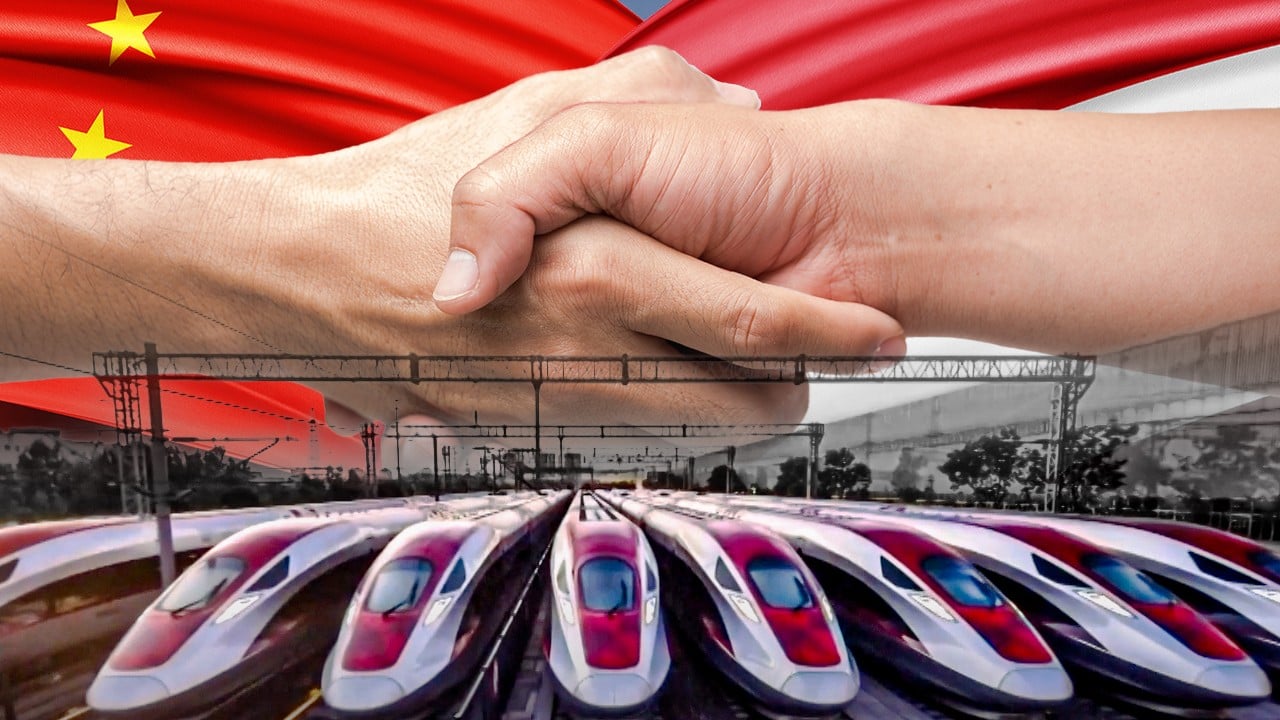China’s growing sway over Indonesian media raises fears of ‘silencing’, threats against reporters
“China wants to push the narrative that the situation in Xinjiang is fine and that the news related to the human rights issue in Xinjiang is Western propaganda,” Zulfikar said.
“Second, they want to push the narrative that [the belt and road] is providing benefits to Indonesia, especially in the context of the Jakarta-Bandung high-speed train. There have been several attempts to cover up stories related to problems with the high-speed train.”
Sasmito, head of the Alliance of Independent Journalists (AJI) in Indonesia, urged Indonesian journalists to “be more critical of news sourced from Chinese state media”.
“When we talk about the press, we talk about the public interest, not economic interests. We do not reject investment from any country, but we also need to criticise Chinese investments in Indonesia and compare [them] with [investments from] other countries,” said Sasmito, who goes by one name only.
Subsidised trips, content-sharing
According to Zulfikar, two of the most prominent content-sharing deals between Chinese state-owned news corporations and Indonesian media were signed in 2019. The first was between Xinhua and Indonesian state news agency Antara, and the second was between Metro TV, a major Indonesian broadcaster, and China Global Television Network.
Zulfikar said while both deals ensured “more positive and less critical coverage of China” in Indonesia, pro-Beijing news has yet to dominate local coverage as readers and the media still have access to other diverse sources such as international newswires.
In jab at Jokowi, Indonesia’s presidential hopefuls vow pivot from China focus
In jab at Jokowi, Indonesia’s presidential hopefuls vow pivot from China focus
The papers that are involved in content-sharing deals with Chinese media also tend not to promote Beijing’s narratives when they contradict Indonesia’s national interests, such as China’s aggression in the South China Sea, Zulfikar said.
Subsidised trips for Indonesian journalists to China are one of the ways Beijing is expanding its influence, but it has not always been successful, he said.
“In 2019, 10 journalists from the Indonesian Press Council joined a choreographed visit to Beijing. Upon returning to Indonesia, one journalist from a local media outlet [in Lombok] wrote an article saying that Xinjiang is [an issue] created by the Western propaganda,” Zulfikar said.
But another journalist, who works for a national newspaper that described itself as a publication for the Muslim community, wrote that Muslims in Xinjiang were being subjected to discrimination after returning from his visit.

“Shortly after, he received a WhatsApp text [from China’s embassy in Indonesia] demanding him to take down the article,” Zulfikar said.
Sasmito from AJI condemned any kind of threat or intimidation against journalists. “A journalist’s job is to verify facts, to find out whether the statements made by China are in accordance with the facts on the ground,” he said.
Reports of intimidation
AJI had received reports of intimidation from several Indonesian media outlets that had covered problematic belt and road projects, Sasmito said.
For example, KompasTV, a prominent news channel, was sued in May by a YouTuber affiliated with PT Kereta Cepat Indonesia China (KCIC), the joint venture between Indonesian and Chinese consortiums behind the construction of the Jakarta-Bandung high-speed rail. KCIC had worked with 25 content creators including the YouTuber to promote the project.
Indonesia’s nickel sector can rebound from Tesla EV setback with policy revamp
Indonesia’s nickel sector can rebound from Tesla EV setback with policy revamp
KompasTV used the YouTuber’s footage as part of a news report highlighting the 8.5 trillion rupiah (US$546.6 million) in debt that KCIC had taken on to build the fast train. The channel had used the same footage before – without incident – to report on the project last year.
Rosiana Silalahi, editor-in-chief of KompasTV, said in her statement on May 11 that the channel’s video took the footage from KCIC’s official YouTube account – the latter did not highlight the joint venture’s debt.
This time, the YouTuber filed a copyright claim on the report and demanded the channel pay 1.3 billion rupiah. The lawsuit could have led to the end of KompasTV’s YouTube channel if the claim had been successful, but it ultimately failed, according to Sasmito.
“We have received information that there are other media outlets that have experienced the same thing, but they do not dare officially report it to the AJI or press council,” Sasmito added.
Prabowo slams West’s ‘unfair’ treatment of Indonesia: ‘we don’t need Europe’
Prabowo slams West’s ‘unfair’ treatment of Indonesia: ‘we don’t need Europe’
Sartika Nur Shalati, an environmental researcher in Jakarta, said she was “shocked” to find out Indonesian journalists were subjected to intimidation due to their reporting on Chinese investments in Indonesia. “I thought intimidation was only faced by researchers from NGOs that have criticised Chinese investment, especially infrastructure projects,” she said.
In 2019, Sartika launched a report based on her research on three China-funded coal power plants in South Sumatra, where she found evidence of labour rights violations and environmental destruction, she said.
“A few days after the report was published, three men dropped by our old office in Jakarta, which was already occupied by another company. My friend who worked there said that they forcibly demanded to know our new address, but she didn’t tell them,” she said.
After that incident, Sartika worked from home for a week. She also received phone calls from unknown numbers but did not pick up.
“Now I’m a bit careful about doing research whose topics involve China, I’m afraid that actions we take could be subject to silencing,” she said.



 Offers free spin
Offers free spin